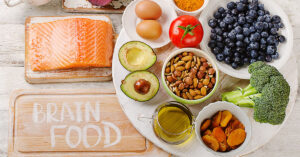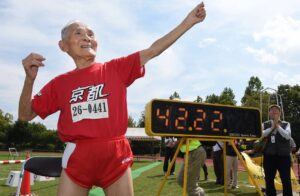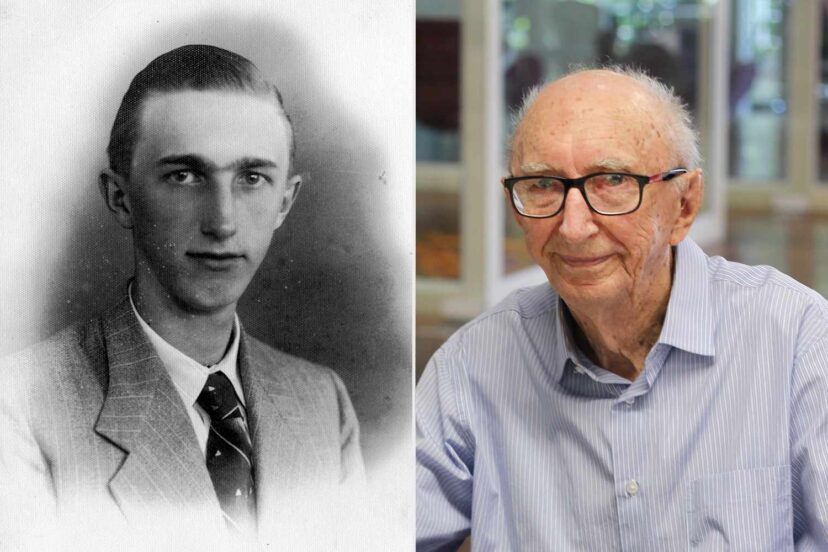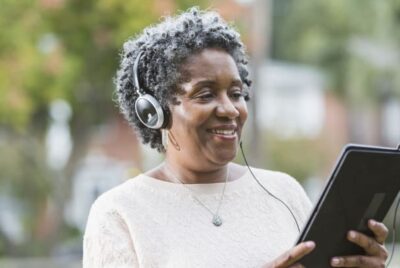Healthy Brain Aging: Tips for Cognitive Fitness
Healthy Brain Aging: Tips for Cognitive Fitness
Aging is a natural part of life, and with it comes the desire to maintain not only physical health but also cognitive vitality. Cognitive fitness, or the ability to think, learn, and remember, is a critical aspect of overall well-being as we age. Fortunately, there are strategies and practices that can help keep the mind sharp and prevent cognitive decline. In this article, we’ll explore these strategies and offer guidance on how to achieve healthy brain aging.
Stay Physically Active: The Mind-Body Connection
Physical exercise isn’t just good for the body; it’s also a powerful tool for maintaining cognitive health. Regular physical activity has been linked to improved memory, enhanced problem-solving skills, and reduced risk of cognitive decline. Exercise increases blood flow to the brain, which can promote the growth of new neurons and the formation of connections between them.
Best Practice: Incorporating a mix of cardiovascular exercises, strength training, and activities that challenge coordination and balance can be especially beneficial. The combination of exercise and cognitive training, such as puzzles or brain games, can yield excellent results.
Mental Stimulation: Use It or Lose It
Just like physical exercise, mental exercise is vital for a healthy brain. Engage in activities that challenge your intellect, such as reading, puzzles, learning a new language, or taking up a musical instrument. These activities can help to build and strengthen neural connections, enhancing cognitive flexibility and memory.
Best Practice: Lifelong learning is a key component of healthy brain aging. It’s never too late to acquire new skills or explore new interests, and this continual mental stimulation can have a profound impact on cognitive fitness.

Healthy Eating for Brain Health
A nutritious diet is essential for overall health, but specific foods have been shown to promote cognitive fitness. Foods rich in antioxidants, such as fruits and vegetables, can protect the brain from oxidative stress. Omega-3 fatty acids, found in fish, flaxseeds, and walnuts, have been associated with improved cognitive function.
Best Practice: While there is no “magic” brain-boosting food, a balanced diet that includes a variety of nutrients is essential. It’s important to make choices that support both cardiovascular health and brain health.
Quality Sleep: The Brain’s Recharge
Getting enough high-quality sleep is crucial for cognitive fitness. During deep sleep, the brain processes and consolidates memories. Sleep deprivation can lead to cognitive impairment, including difficulty with decision-making and problem-solving.
Best Practice: Sleep should be a priority, and individuals should create a bedtime routine that promotes restful sleep. This may include limiting screen time before bed and creating a dark, quiet sleep environment.
Social Engagement: The Power of Connection
Social interaction is not only emotionally fulfilling but also cognitively beneficial. Engaging with others in meaningful conversations, participating in social activities, and maintaining strong social networks can help keep the brain active and resilient.
Best Practice: The importance of social interaction cannot be overstated. Loneliness and social isolation can have detrimental effects on cognitive health. Seniors should actively seek out opportunities for social engagement.
Stress Management: Mindfulness and Relaxation
Chronic stress can negatively impact the brain, affecting memory and decision-making. Practices such as mindfulness meditation, yoga, and deep breathing exercises can help reduce stress and support cognitive health.
Best Practice: Stress is an inevitable part of life, but how we manage it can make a significant difference. These relaxation techniques not only promote cognitive fitness but also overall well-being.
Regular Health Check-Ups
Don’t underestimate the importance of routine medical check-ups. Conditions such as hypertension, diabetes, and high cholesterol can affect cognitive health. Managing these conditions through regular medical care is essential.
Best Practice: Proactive healthcare is an investment in cognitive fitness. Regular check-ups can catch potential issues early and allow for timely intervention.
there are several products designed to help seniors stay mentally sharp and maintain cognitive fitness. These products cater to various aspects of brain health, from cognitive training to brain-boosting nutrition. Here, we’ll elaborate on some of these products:

Brain-Training Apps
- Lumosity: Lumosity offers a variety of brain-training games and exercises designed to improve memory, attention, and problem-solving skills.
- Elevate: Elevate provides personalized brain training with daily challenges that focus on skills like reading comprehension, math, and writing.
- Peak: Peak offers more than 40 games and puzzles to challenge memory, language, and mental agility.
Best Practice: Brain-training apps can be engaging and convenient for seniors looking to exercise their minds. However, it’s essential to balance digital brain training with real-life mental stimulation. Take a look at this workbook Lower Your Brain Age In Minutes A Day.
Jigsaw Puzzles
- Jigsaw puzzles are a classic and tactile way to enhance cognitive abilities. They require problem-solving, spatial recognition, and visual memory skills.
Best Practice: Jigsaw puzzles offer a low-tech and enjoyable way for seniors to stay mentally active. They can be done solo or with family and friends, fostering social engagement as well.
Brain-Boosting Supplements
- Omega-3 Fatty Acids: Omega-3 supplements, often derived from fish oil, contain essential fatty acids that support brain health and may help prevent cognitive decline.
- Ginkgo Biloba: Ginkgo biloba supplements are believed to improve blood flow to the brain, potentially enhancing memory and cognitive function.
Best Practice: While these supplements are available, it’s important to consult a healthcare professional before adding them to one’s diet. A well-balanced diet that includes these nutrients naturally is generally preferable.
Books and Audiobooks
- Reading books or listening to audiobooks stimulates the mind, improves vocabulary, and enhances cognitive abilities. Seniors can explore a wide range of genres and topics.
Best Practice: Books offer a timeless and cost-effective way to stay mentally sharp. Reading is not only mentally stimulating but also a source of pleasure and knowledge. Check out this book Eating For Cognitive Power.
Mental Fitness Games
- Crossword Puzzles: Crossword puzzle books challenge vocabulary and problem-solving skills.
- Sudoku: Sudoku puzzles exercise logic and critical thinking.
- Chess and Checkers Sets: These classic board games promote strategic thinking and memory.
Best Practice: Mental fitness games are enjoyable and engaging tools to maintain cognitive abilities. They can be played alone or with others, enhancing social interaction. Take a look at this Memory Game.
Memory Aids
- Memory Journals: Seniors can use memory journals to record daily experiences, thoughts, and reflections, helping to maintain and strengthen memory.
- Medication Reminders: Specialized pill organizers with alarms can help seniors manage their medication schedules effectively.
Best Practice: Memory aids can be invaluable for seniors, particularly those concerned about memory loss. They provide practical support for daily living.
Meditation and Relaxation Tools
- Mindfulness Apps: Apps like Headspace and Calm offer guided meditation and relaxation exercises to reduce stress and enhance mental clarity.
- Stress Balls: Squeezable stress balls can be used as tools for stress relief and mental relaxation.
Best Practice: Stress management is an important aspect of cognitive health. Meditation and relaxation tools help seniors maintain emotional well-being, which, in turn, supports cognitive fitness.
There is a range of products that can help seniors stay mentally sharp. These products cater to various preferences and needs, whether it’s through digital brain training, tactile puzzles, supplements, engaging literature, memory aids, mental fitness games, or relaxation tools. While these products can be valuable, it’s important to remember that a holistic approach to cognitive health, including a balanced diet, physical activity, and social engagement, is equally crucial. Seniors can explore these products and integrate them into their daily routines to support and enhance their cognitive well-being.

Centenarians
Mental alertness in individuals who reach the remarkable milestone of 100 years of age is a fascinating topic. While the aging process typically brings cognitive changes, centenarians often exhibit unique characteristics and attributes when it comes to mental acuity. Let’s delve into the factors that contribute to the mental alertness of many centenarians:
Genetics and Longevity Genes
- Many centenarians have a genetic predisposition to longevity. Some studies suggest that certain genes are associated with longevity and may also contribute to better cognitive function in later years.
Best Practice: While genetics play a role, it’s important to recognize that lifestyle and environmental factors can still have a significant impact on mental alertness in centenarians.
Lifelong Learning
- Centenarians often have a thirst for knowledge and a lifelong commitment to learning. They tend to read, engage in intellectual pursuits, and remain curious about the world around them.
Best Practice: The commitment to lifelong learning is a powerful attribute that keeps the mind agile. It highlights the importance of mental stimulation throughout one’s life.
Healthy Lifestyle Choices
- Many centenarians have practiced healthy lifestyle choices throughout their lives, including maintaining a balanced diet, engaging in regular physical activity, and avoiding smoking and excessive alcohol consumption.
Best Practice: Healthy lifestyle choices have a profound impact on both physical and cognitive health. The positive effects of a nutritious diet and physical exercise on the brain cannot be overstated.
Social Engagement
- Staying socially engaged is a common trait among centenarians. They maintain strong social networks, enjoy spending time with friends and family, and participate in social activities.
Best Practice: Social engagement not only contributes to mental alertness but also promotes emotional well-being. Strong social connections are a cornerstone of healthy aging.
Resilience and Adaptability
- Centenarians have lived through a century of challenges and changes. Their ability to adapt to different circumstances and maintain resilience in the face of adversity can contribute to mental alertness.
Best Practice: The ability to adapt and remain resilient is a testament to the human spirit. It reinforces the idea that a positive mindset can have a significant impact on cognitive function.
Brain-Boosting Activities
- Engaging in activities that challenge the mind, such as puzzles, games, and hobbies, is common among centenarians. These activities stimulate cognitive function and memory.
Best Practice: The importance of mental fitness activities cannot be understated. These activities provide opportunities for constant mental stimulation.
Emotional Well-Being
- Centenarians often maintain a positive outlook on life and have good emotional health. Managing stress, maintaining a sense of purpose, and finding joy in daily activities contribute to mental alertness.
Best Practice: Emotional well-being is closely tied to cognitive health. A positive and purposeful attitude can support mental alertness.
Medical and Healthcare
- Regular medical check-ups and the management of health conditions are crucial for centenarians. They take proactive steps to address medical concerns, which can help maintain cognitive health.
Best Practice: Proactive healthcare is a key aspect of healthy aging. Early intervention and proper medical care are essential for preserving cognitive function.
Mental alertness in centenarians is the result of a combination of factors, including genetics, lifestyle choices, lifelong learning, social engagement, resilience, and emotional well-being. While genetics may play a role, the lifestyle and environmental factors within an individual’s control are equally, if not more, important. Centenarians are a testament to the potential for mental sharpness in advanced age, and their experiences emphasize the significance of ongoing mental stimulation and positive life choices in promoting cognitive health.
Conclusion
Fun note: all the photos in this article are of people who have reached 100 years of age. Maintaining cognitive fitness in later years is a multifaceted endeavor that involves a combination of physical, mental, and lifestyle factors. While aging is inevitable, cognitive decline doesn’t have to be. By staying physically active, engaging in mental stimulation, eating well, getting quality sleep, connecting with others, managing stress, and prioritizing healthcare, seniors can significantly improve their cognitive health and enjoy a vibrant, mentally agile life in their golden years. It’s never too late to start implementing these strategies for a healthier, sharper mind. Click here to read about more life enhancing products for seniors.
Disclaimer: We are NOT responsible for your mental or emotional health in ANY way. We are simply trying to be helpful with great information. Please take responsibility for your own cognitive and brain health.




